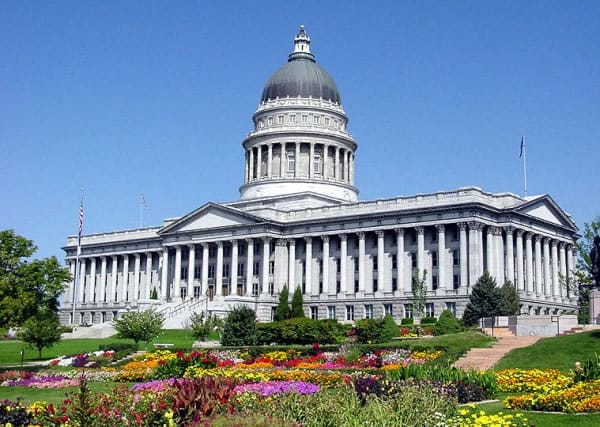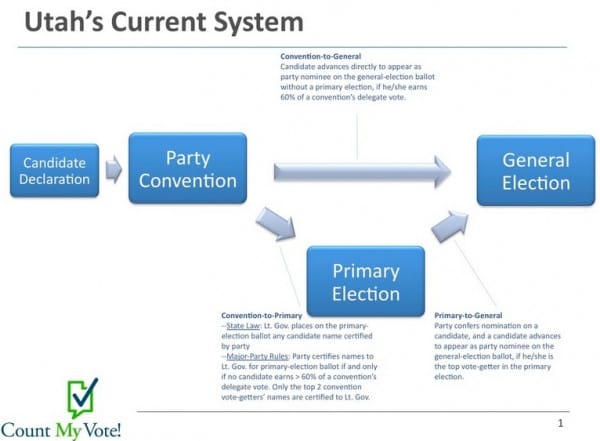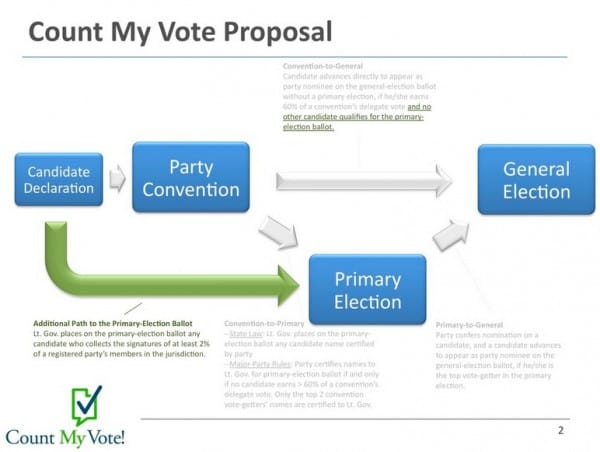Utah Parties Choose to Keep Nation's Least Participatory Electoral System
Credit: utcourts.gov

Utah was the last state in the union to limit ballot access to a caucus-convention system, which allows candidates to avoid primary elections, and the major political parties in the state recently decided to conserve this system.
Utah is considered to be one of the most conservative states in the U.S. and is seen as the Republican equivalent of California. However, the largest voting bloc in the state consists of nonaffiliated voters who represent approximately 55 percent of the state's voting population.
As it stands, the current caucus system makes it extremely difficult for these independent voters to have a meaningful impact on the electoral process.
Unaffiliated voters are currently free to vote in the Democratic Primary without any additional requirements, but have to register with the Republican Party on election day to vote in its primary. While this is quite common around the country, Utah restricts voter participation even more by allowing candidates to avoid primary elections.
Under each party's caucus system, a candidate who receives more than 60 percent of the delegates in the caucus will automatically be placed on the November ballot, without competing in the primary. This only encourages candidates to court party loyalists rather than appeal to the broader party base and unaffiliated voters.

In statewide races, a maximum 3,500 Republican delegates and 2,645 Democratic delegates have the power to decide who will be on the November ballot without letting the 699,000 Utah voters registered with the GOP or the 164,000 voters affiliated with the Democratic Party have a say.
No other state has a system that gives so much power to a small group of party leaders over the selection of candidates which disenfranchises most of the state's population.
The lack of political competition this system produces is considered to be one of the biggest reasons there is such low participation among Utahans. The state went from number 1 in the nation in terms of voter turnout in 1968, to 39 in 2012, with a record low ranking of 48 in 2008.
However, in recent weeks, delegates in both parties voted in favor of keeping the caucus system. Just last week, 165 Democratic delegates decided they want to keep a system that can exclude many of the party's members from meaningful participation in the voting process.
The Republican Party voted the same way in May. However, a number of dissenting voices are rising and challenging the status quo.
An initiative, Count My Vote, is promoting a reform measure that would allow candidates not chosen by a party's caucus to still make it on the primary ballot if they gather a certain amount of signatures.

The proponents of the initiative hope to get it passed through the state Legislature, but are ready to push for a citizen initiative if necessary. Sixty-seven percent of survey takers in a recent poll said they would favor such an initiative.
This is an important step to end an archaic system which leaves too much power to a small party elite. But, additional reforms will be needed before the 55 percent of unaffiliated voters will be allowed to fully participate in the electoral process in Utah.



